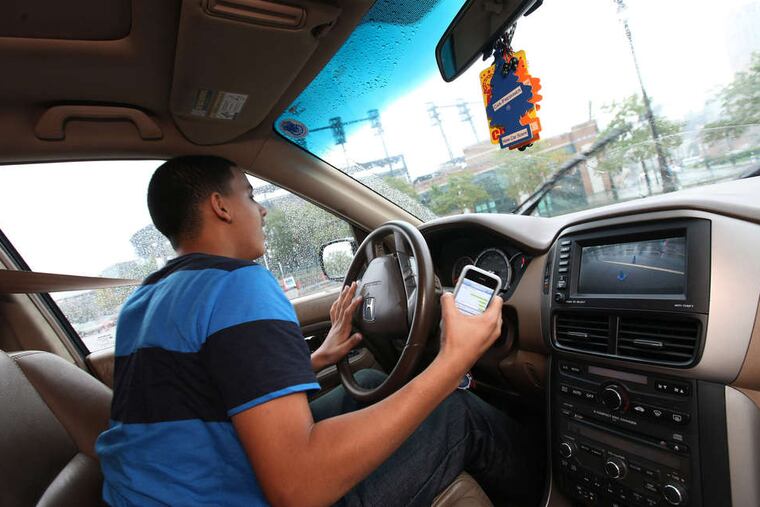Teens drivers with ADHD are more likely to crash and get ticketed for moving violations, CHOP study finds
While the risk of crash is elevated for all new drivers, the researchers found it was 62 percent higher for teens with ADHD the first month after getting licensed.

Teen drivers diagnosed with attention-deficit hyperactivity disorder (ADHD) are significantly more likely to be involved in crashes, to engage in risky behind-the-wheel behaviors including driving while intoxicated, and be issued traffic and moving violations than their peers without ADHD, according to a new Children’s Hospital of Philadelphia study. Particularly perilous appeared to be the early months after licensure.
The research appears Monday in the journal Pediatrics. Here are the highlights.
The context
Previous research has shown that adolescents with ADHD are more likely to be in vehicular crashes but there had not been much study of the particular behaviors that lead to those outcomes. Youngsters with ADHD have also been linked overall to more risk-taking behaviors. This study looked at risky behaviors behind the wheel, particularly in the newly licensed period — a high-risk time for all new drivers.
The data
For this large-scale, longitudinal study, the researchers reviewed the records of 14,936 adolescents who were patients at six Children’s Hospital of Philadelphia primary practices in New Jersey and who had obtained an intermediate driver’s license between January 2004 and December 2014. The study team linked the teens’ electronic health data with New Jersey driver’s licensing records, traffic violations and police-reported crash data. Among these youngsters, they identified 1,769 adolescents, or about 12 percent of the sample, with childhood-diagnosed ADHD who had obtained an intermediate license. They compared their outcomes with those of teen drivers without ADHD.
The results
While the risk of crash is elevated for all new drivers, the researchers found it was 62 percent higher for teens with ADHD the first month after getting licensed and 37 percent higher than other adolescents during their first four years. That was regardless of their age when they were licensed. The rate of traffic and moving violations was also significantly higher for the ADHD teens. The young ADHD drivers had greater rates of violations for speeding, not using seat belts, careless driving or using electronic equipment while driving. Their four-year rate of alcohol-related crashes was more than twice that of their non-ADHD peers. In their first year of driving, the ADHD teens’ rate of alcohol- or drug-related violations was 3.6 times higher.
The caveats
The teen drivers with ADHD were identified through lifetime medical records, as opposed to confirming the actual severity of their disorder for the period studied. Therefore, the study results could have underestimated the level of risk for the youngsters with the most symptomatic or active ADHD.
Next steps
The good news is that the behaviors that led to many of these findings are preventable. Rather than relying on medication or later driving ages, which didn’t appear to be effective with these teens, the researchers said comprehensive preventative programs and approaches need to be developed for these youngsters. These could include programs aimed at helping young people with ADHD develop better decision-making and responsible driving skills. In addition, researchers called for more study to better understand how ADHD symptoms influence driving behavior and risk taking.